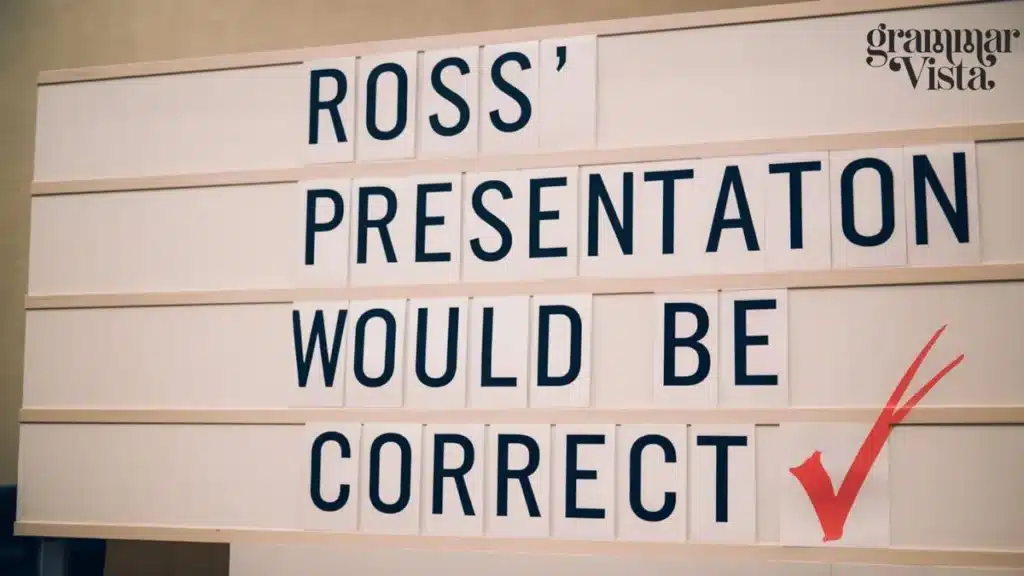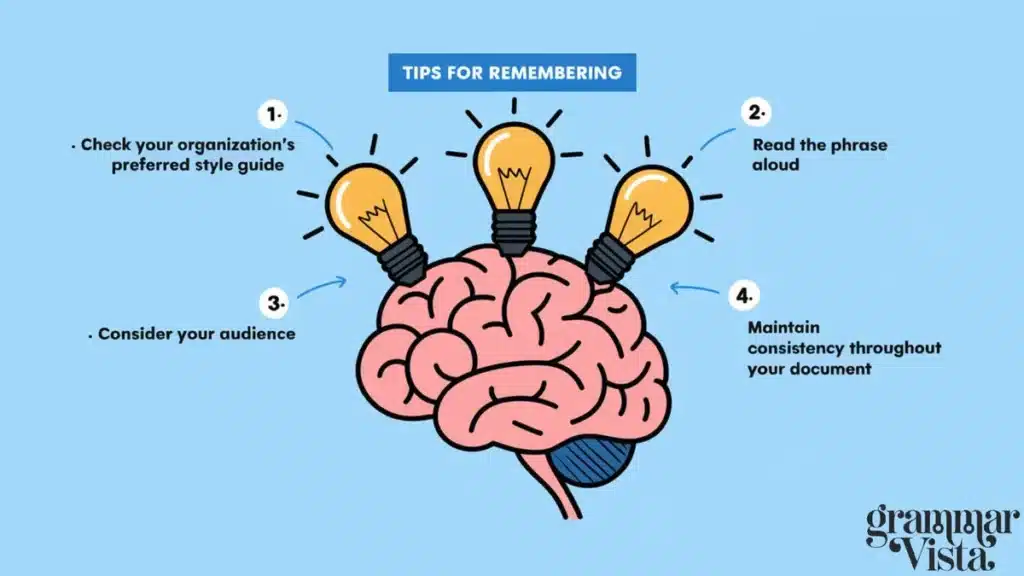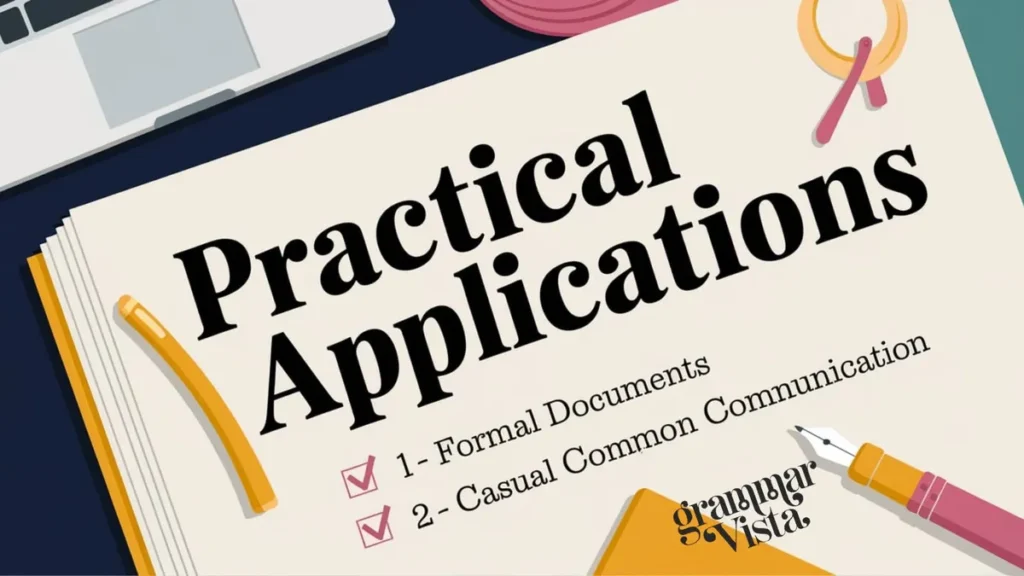The distinction between “Ross’s” and “Ross’” often leads to confusion among writers trying to navigate possessive forms. Both are used to indicate ownership, but the choice typically depends on style preferences and context. “Ross’s” adds an extra “s,” which is commonly accepted in many writing styles, while “Ross'” omits the second “s,” aligning with a more traditional approach. Understanding when to use each form is essential for clarity and precision in writing. In this article, we will examine the rules and considerations surrounding “Ross’s” and “Ross’,” helping you confidently choose the correct possessive form.
Ever stared at your screen, wondering whether to write “Ross’s office” or “Ross’ office”? You’re not alone. This common grammatical puzzle trips up even seasoned writers. Let’s dive into the fascinating world of possessives and settle this debate once and for all.
The Basic Rules: When to Use ‘s vs ‘
As a language enthusiast and frequent user of online grammar resources, I’ve seen this question pop up countless times. The answer isn’t as straightforward as you might think – it actually depends on which style guide you follow.
The Chicago Manual of Style Approach
The Chicago Manual of Style takes a clear stance: add ‘s to all singular nouns, even those ending in s. According to this respected guide:

- Ross’s workspace is correct
- James’s book is correct
- The boss’s meeting is correct
Think about how you’d naturally say these words. You’d likely pronounce that extra ‘s’ sound, right? That’s partly why the Chicago style advocates for this approach.
APA Style: A Different Take
The Associated Press style, or APA Style, offers a simpler rule: just add an apostrophe to singular proper nouns ending in s. Following this guide:

- Ross’ presentation would be correct
- James’ car would be correct
- Jesus’ teachings would be correct
Real-World Examples and Usage
Let’s look at some practical examples using our friend Ross:
In an Office Setting:
- “Have you seen Ross’s desk?” (Chicago style)
- “Ross’ secretary left early today.” (APA style)
- “I love Ross’ sense of humor.” (APA style)
- “Ross’s environment promotes creativity.” (Chicago style)
As a Joshua seasoned writer might tell you, consistency matters more than which style you choose. Pick one approach and stick with it throughout your document.
Special Cases and Common Confusions
Multiple Possessors
When dealing with joint possession:
- “Ross and Jim’s project” (they share one project)
- “Ross’s and Jim’s projects” (they each have separate projects)
Historical and Classical Names
Names from classical and religious works often follow special rules:
- Achilles’ heel
- Moses’ laws
- Jesus’ disciples
Digital Age Considerations
In our modern world of digital communication, linguistic skills matter more than ever. Whether you’re writing an email to your boss or updating your language expertise on LinkedIn, understanding proper possessive forms is crucial.
Read More about Business’ or Business’s?
Professional Impact
Your choice between Ross’s and Ross’ might seem minor, but it can affect how others perceive your communication skills. In professional settings, consistency with your organization’s style guide shows attention to detail.
Style Guide Preferences
Different industries tend to favor different approaches:
- Academic writing often follows Chicago style
- Journalism typically uses APA style
- Technical writing may have its own guidelines
Practical Tips for Remembering

To strengthen your grammar skills and avoid confusion:
- Check your organization’s preferred style guide
- Read the phrase aloud
- Consider your audience
- Maintain consistency throughout your document
The Evolution of Language
As any true language aficionado knows, language evolves. While both forms (Ross’s and Ross’) are technically correct, usage patterns shift over time. Modern digital grammar guides often acknowledge both forms while recommending one over the other based on context.
Expert Recommendations
As a linguistic expert, I recommend choosing the style that:
- Matches your industry standards
- Feels natural in pronunciation
- Maintains consistency in your writing
Common Scenarios and Solutions
Let’s examine some typical situations:
In Business:
- “I’ll be working from Ross’s office today.”
- “Did you receive Ross’ presentation materials?”
- “The meeting will be in Ross’s area.”
In Academic Writing:
- “Ross’s analysis of the data revealed…”
- “The study builds on Ross’ previous research…”
Understanding Context and Application
Let me share some more nuanced scenarios that’ll help you master these possessive forms. After all, knowing when to use “Ross’s” or “Ross'” is just the beginning of developing strong linguistic skills.
Digital Communication Scenarios
In our increasingly digital world, where every online grammar resource offers different advice, context becomes crucial. Let’s explore some common situations:
Email Communications
- “Please review Ross’s proposal” (formal business)
- “Did you see Ross’ funny email?” (casual internal)
- “Forward this to Ross’s team” (organizational directive)
Industry-Specific Applications
Different industries have unique preferences, often influenced by their primary style guides:
Journalism
Following APA Style:
- “Ross’ coverage of the event…”
- “The reporter visited Ross’ environment…”
- “According to Ross’ sources…”
Academic Writing
Following the Chicago Manual of Style:
- “Ross’s analysis demonstrates…”
- “The study builds on Ross’s theoretical framework…”
- “Ross’s methodology suggests…”
Professional Documentation
When working in professional settings, consider these examples:
Office Communications

- “Please forward this to Ross’s secretary”
- “The meeting will be in Ross’s workspace”
- “Have you seen Ross’ new presentation?”
As any Joshua seasoned writer would tell you, maintaining consistency within professional documents is crucial for credibility.
Social Media and Informal Writing
Even in casual settings, understanding proper usage enhances your communication skills:
- “Check out Ross’s latest post”
- “Love Ross’ sense of humor in this tweet”
- “Ross’s blog post went viral”
Advanced Applications
For those developing advanced linguistic expertise, consider these nuanced situations:
Multiple Possession Scenarios
- “Ross’s and Jim’s offices” (separate offices)
- “Ross and Jim’s office” (shared office)
- “Ross’s team’s project” (nested possession)
Technology and Modern Usage
In the age of autocorrect and AI writing assistants, understanding proper possessive forms becomes even more important:
Digital Platforms
- URLs: often avoid apostrophes entirely
- Hashtags: typically omit apostrophes
- Code: may require special handling of apostrophes
Teaching and Learning
For language aficionados helping others master these concepts:
Teaching Tips
- Start with basic rules
- Progress to exceptions
- Practice with real-world examples
- Explain context-specific usage
You might be interested in Roberts’ or Roberts’s?
Style Guide Evolution
Even established guides like the Chicago Manual of Style and AP Style continue to evolve:
Recent Changes
- More flexibility in digital contexts
- Recognition of industry-specific variations
- Adaptation to modern communication needs
Cultural Considerations
Different English-speaking regions may have varying preferences:
- British English tends toward additional ‘s
- American English often simplifies to just an apostrophe
- Australian English follows similar patterns to British English
Practical Applications

For daily use, consider these guidelines:
- Formal Documents
- Follow your organization’s style guide
- Maintain consistency throughout
- Consider your audience’s expectations
- Casual Communication
- Choose readability over strict rules
- Consider platform limitations
- Maintain clarity above all
Future Trends
As language continues to evolve, we might see:
- Simplified digital standards
- More flexible style guides
- Platform-specific conventions
Remember, whether you’re a grammar lover or just trying to write correctly, understanding these rules helps you communicate more effectively. The key is not just knowing the rules but understanding when and how to apply them appropriately.
Through consistent practice and attention to context, you’ll develop an intuitive sense of when to use “Ross’s” versus “Ross'” – a valuable skill for any writer or communicator in today’s world.
The Psychology Behind Possessive Forms
Let’s delve deeper into why the “Ross’s” vs. “Ross'” debate triggers such passionate responses among language enthusiasts and explore some fascinating psychological aspects of language usage.
The Cognitive Load of Language Processing
As any Joshua seasoned writer knows, our brains process language differently when reading versus speaking:
Speaking Patterns
- We naturally say “Ross-ez” when pronouncing “Ross’s”
- The “Ross'” form often feels abrupt in speech
- Our brain naturally adds the extra syllable
Reading Patterns
- “Ross’s workspace” provides visual clarity
- “Ross’ environment” can feel more streamlined
- The eye processes apostrophes as visual markers
Industry-Specific Applications Expanded
Let’s explore how different sectors approach this grammatical choice:
Legal Documents
- “Ross’s affidavit states…”
- “Ross’ testimony indicates…”
- Consistency is crucial for legal clarity
Technical Writing
When documenting software or technical processes:
Ross’s_directory/
Ross’s_config.json
Ross_settings.yml // Note: Some systems avoid apostrophes entirely
Social Media Evolution
Modern platforms have influenced how we use possessives:
Character Limitations
- Twitter: “Ross’s” counts as 6 characters
- “Ross'” saves one character
- Some platforms automatically correct possessive forms
Educational Contexts
Teaching possessive forms requires understanding multiple learning styles:
Visual Learners
- Diagrams showing possessive relationships
- Color-coding different types of possession
- Visual maps of ownership connections
Auditory Learners
- Pronunciation exercises
- Rhythm patterns for possessive forms
- Spoken examples and practice
International Business Considerations
Global communication adds another layer of complexity:
Cross-Cultural Communication
- “Ross’s secretary” in formal British English
- “Ross’ office” in American business writing
- Regional variations in linguistic skills
Digital Age Adaptations
Modern online grammar resources have evolved to address:
Digital Writing Tools
- Auto-correction preferences
- Style guide integrations
- AI writing assistance
Advanced Grammar Concepts
For those deepening their language expertise:
Nested Possessives
- “Ross’s colleague’s presentation”
- “Ross’ team’s project scope”
- “Ross’s department’s budget”
Read More grammar lessons on GrammarVista
Contemporary Style Guide Updates
Recent changes in major style guides:
The Chicago Manual of Style Updates
- Digital format considerations
- Social media guidelines
- Modern usage adaptations
APA Style Revolutions
- Simplified digital rules
- Platform-specific guidance
- Updated professional standards
The Final Verdict
While both forms have their place, here’s my recommendation:
- For general writing, follow the Chicago style (Ross’s)
- For journalism or news writing, use APA style (Ross’)
- For academic work, check your institution’s requirements
Remember, as a language hobbyist or professional writer, your goal is clear communication. Don’t let this grammatical choice paralyze you; both forms are widely accepted, and your consistency matters more than which one you choose.







